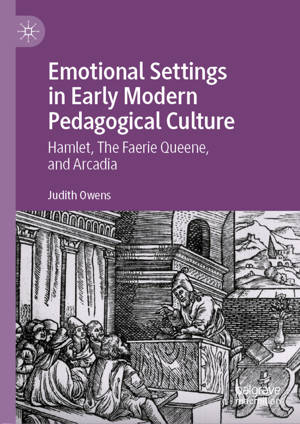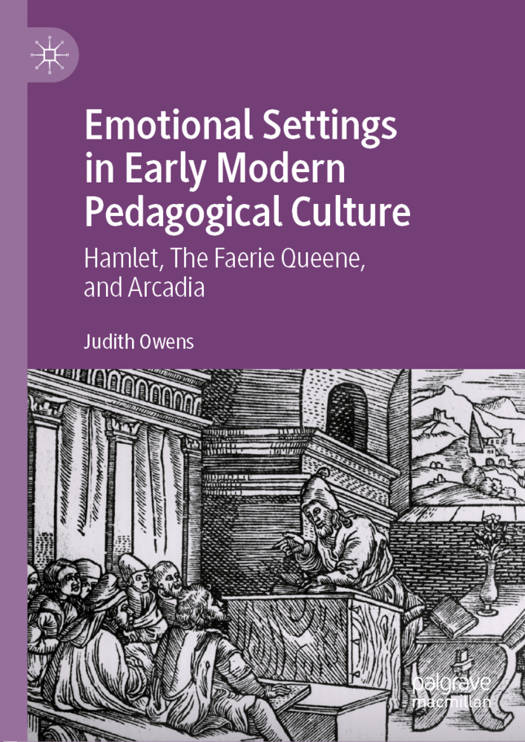
- Afhalen na 1 uur in een winkel met voorraad
- Gratis thuislevering in België vanaf € 30
- Ruim aanbod met 7 miljoen producten
- Afhalen na 1 uur in een winkel met voorraad
- Gratis thuislevering in België vanaf € 30
- Ruim aanbod met 7 miljoen producten
Zoeken
Emotional Settings in Early Modern Pedagogical Culture
Hamlet, the Faerie Queene, and Arcadia
Judith Owens
Hardcover | Engels
€ 83,95
+ 167 punten
Uitvoering
Omschrijving
This book is notable for bringing together humanist schooling and familial instruction under the banner of emotions and for studying seminal works of early modern literature within this new analytical context. It thus furnishes unique ways to think about two closely interrelated moral imperatives: shaping boys into civil subjects; and fashioning heroic agency and selfhood in literature. In tracing the emotional dynamics of the humanist classroom, this book shows just how thoroughly school could accommodate resistance to authority and foster unruly boys. In gauging the emotional pressures at work in filial relationships, it shows how profoundly sons could experience patriarchal authority as provisional, negotiable, or damaging. In turning to Shakespeare's Hamlet, Spenser's Prince Arthur, and Sidney's Arcadian heroes, Emotional Settings highlights the ways in which the respective emotional and moral imperatives of home and school could bring conflicting pressures to bear in the formation of heroic agency - and at what cost. Engaging and accessible, this book will appeal to scholars interested in early modern literature, pedagogy, histories of emotion, and histories of the family, as well as to graduate students and advanced undergraduate students in these fields.
Specificaties
Betrokkenen
- Auteur(s):
- Uitgeverij:
Inhoud
- Aantal bladzijden:
- 218
- Taal:
- Engels
Eigenschappen
- Productcode (EAN):
- 9783030431488
- Verschijningsdatum:
- 31/05/2020
- Uitvoering:
- Hardcover
- Formaat:
- Genaaid
- Afmetingen:
- 148 mm x 210 mm
- Gewicht:
- 458 g

Alleen bij Standaard Boekhandel
+ 167 punten op je klantenkaart van Standaard Boekhandel
Beoordelingen
We publiceren alleen reviews die voldoen aan de voorwaarden voor reviews. Bekijk onze voorwaarden voor reviews.








